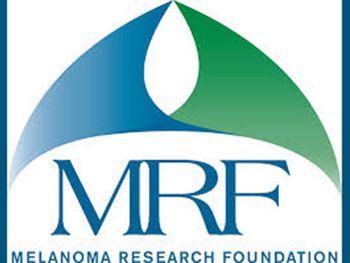
The FDA has approved a lighter and more convenient version of the tumor-treating field device Optune for patients with glioblastoma multiforme.

The FDA has approved a lighter and more convenient version of the tumor-treating field device Optune for patients with glioblastoma multiforme.

A CAR-T Cell therapy trial was put on hold by the FDA after the death of three participants.

Maintenance treatment with the novel agent niraparib improved progression-free survival (PFS) compared with placebo for patients with recurrent ovarian cancer harboring a germline BRCA (gBRCA) mutation or homologous recombination deficiency (HRD).

Keytruda is showing promise for difficult-to-treat forms of head and neck cancer, according to two studies.

The combination of Opdivo and Yervoy is showing promise as a treatment for PD-L1-Positive Non-Small Cell Lung Cancer, according to the results of a recent study.

Opdivo showed a higher-than-average OS rate and presented no grade 3/4 adverse events in patients with recurrent glioblastoma multiforme, according to a recent study.

The experimental immunotherapy avelumab demonstrated durable responses and promising early survival data for patients with pretreated metastatic Merkel cell carcinoma.

According to results from a phase 3 study, Opdivo improved overall survival and objective response rates for patients with recurrent or metastatic head and neck squamous cell carcinoma.

Phase 2 data presented at ASCO showed that Tafinlar plus Mekinist was a highly effective treatment regimen for patients with BRAF V600E-mutant NSCLC.

Binimetinib, an experimental targeted drug, reduced the risk of disease progression or death in patients with NRAS-mutant metastatic melanoma in a recent phase 3 study.

Patients with heavily pretreated relapsed/refractory multiple myeloma showed increased progression-free survival and overall survival rates with isatuximab.

Postmenopausal women with locally-advanced or metastatic HR-positive breast cancer benefited from the use of Faslodex (fulvestrant) as a frontline treatment.

Treatment for the polio virus may eventually move into the treatment realm for brain cancer, thanks to a breakthrough therapy designation by the FDA.

After a phase 2 study, Lenvima and Afinitor gained FDA approval for the treatment of renal cell carcinoma.

A new three-drug combination is proving successful for patients with relapsed/refractory multiple myeloma, according to a phase 3 study.

A number of novel therapies are currently being explored as second-line treatments for patients with advanced hepatocellular carcinoma (HCC), including a host of targeted therapies and various immune checkpoint inhibitors.

The FDA granted Opdivo (nivolumab) a breakthrough therapy designation to treat certain patients with head and neck cancer.

A phase 3 study presented at the 2016 AACR Annual Meeting showed that Opdivo doubled one-year survival rate for patients with recurrent or metastatic head and neck squamous cell carcinoma.

The FDA granted Keytruda a breakthrough therapy designation after success in early trials. Information from the phase 2 trial will soon be presented.

Opdivo (nivolumab) is showing promise for patients with metastatic melanoma.

A priority review designation was granted to Keytruda for some patients with head and neck cancer. A decision submission is due in August.

Doctors are optimistic about the future of immunotherapies for the treatment of brain cancer.

The field of immunotherapy has been revitalized thanks to the approval of checkpoint inhibitors, and according to Mario Sznol, this could prove beneficial to patients with RCC.

The FDA's breakthrough designation is meant to expedite the development of therapies that offer substantial benefits over existing options.


The approval was based on data from 50 patients with ROS1-positive NSCLC, in which the overall response rate was 66 percent with a median duration of response of 18.3 months.

The immunotherapy will continue to be offered in the phase 3 trial and compassionate use programs.

Choosing the right treatment option for prostate cancer can be overwhelming, and sometimes a lack of information or second opinion can lead to a wrong decision.

The approval was based on findings from the phase 3 RADIANT-4 trial.
